In Part I of this article, we established that a) musicians need work, b) teachers need musicians, and c) writing songs in schools is a great way to make both of those things happen.
We also looked at how several musicians are approaching these projects – the “how” and the “what” of writing songs with kids. (Read the full article here.)
Today, it’s time to talk turkey.
How Much to Charge
In my experience, and from discussions with numerous other musicians, pricing is all over the board for this kind of work.
$250/day to $2,000/day
The variation in rates is literally that great among the performers I interviewed for this article, with one musician who’s been volunteering for free in their own children’s school district. (I’ve done lots of that too.)
My current rates fall right in the middle of this spread, at $800/day locally and $1,000-1,500/day when I travel.
However, back in ancient times when I first started doing this work, I was asking just $95/classroom, and if they wanted me to come for just one session, that’s what I did.
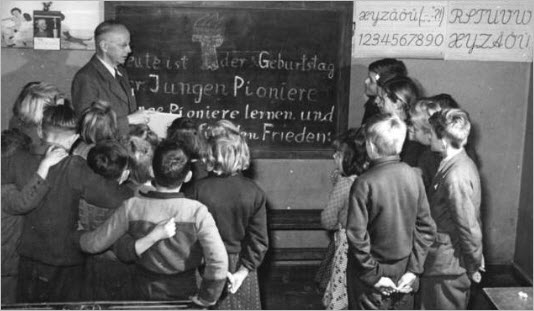 Factors to consider
Factors to consider
You’ll want to think about several different variables as you decide what you’ll be charging:
Just starting out? It’s way more important to get experience and some positive word of mouth than to come out of the gates charging top dollar.
What are others charging in your area? Not that you can’t buck the trend, but this is always a good benchmark to start from.
How much do you want to work? The more affordable you are, the more work you may get (though beware of being too cheap, which can lead to a perceived lack of value in what you do).
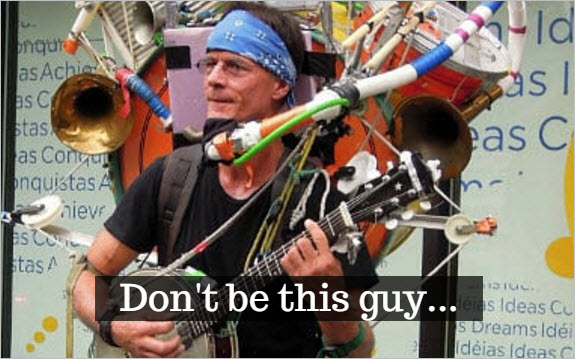 How long is your project? Are you coming in for one 45-minute session (I now charge $400 for this locally; more when I travel), or will you be there six hours a day for two full weeks? (I might discount my daily rate a bit for a two-week booking.)
How long is your project? Are you coming in for one 45-minute session (I now charge $400 for this locally; more when I travel), or will you be there six hours a day for two full weeks? (I might discount my daily rate a bit for a two-week booking.)
How much (if any) prep and planning time will be involved? If you’ll be meeting with the teachers ahead of time, or boning up on the topic before you arrive at the school, make sure to factor that time into your overall quote.
What is the source of funding? Is the school writing a grant, or are the 2nd graders selling wrapping paper to bring you in? Does the school maintain an extensive schedule of arts-in-education programming throughout the year, or will you be the first guest artist they’ve had in three years?
Further reading: How Much Should I Charge? 3 Pricing Strategies for Performers
How to Get The Gigs
The two main sources of bookings for me have always been word of mouth along with lots of my own marketing.
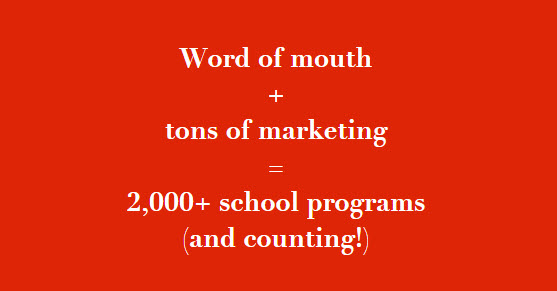 #1. My own marketing
#1. My own marketing
If you’re not up for hustling, this school (or, music) thing may not work out. You just won’t get enough work.
The sad fact is that most teachers aren’t sitting around searching for people like you and me to come help them infuse their teaching with the arts. It’s not that they don’t love it, because they do. They’re just kinda busy.
So, the onus is on us to promote what we do.
Showcases, artist rosters, and arts in education organizations like Young Audiences have all been important sources of gigs for me, but it’s been my own email marketing (and postcards before that) that’s made all the difference in turning this into a sustainable career.
Whom to contact?
This is a tricky question, and depends on several factors.
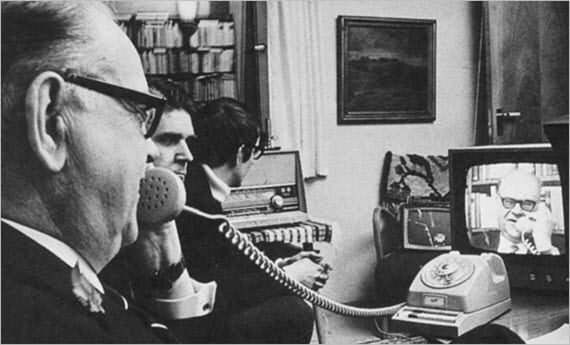 The short answer – start with the principal and/or the person in the main office, and ask.
The short answer – start with the principal and/or the person in the main office, and ask.
The longer answer – some schools will have a dedicated “arts in education” or “cultural arts” person, whereas others don’t. Sometimes the principal handles these things; other times, it’s someone from the PTA/parents group, or a music or art teacher. If you’re tying your songwriting to the grade-level curriculum (i.e. you’re a history buff and 4th graders learn about local history each year), going directly to the teachers at that grade level can be super effective, even if they don’t usually get involved with artist visits.
How other performers handle their marketing
Let’s see how some of our distinguished panel members are taking care of the marketing end of things:
 “I began by applying to local arts education grants (Maine Arts Commission provides a great list for my state). I was awarded a couple grants to do school residencies, and all my school visits since then have come to me by word-of-mouth. Making teachers happy and contributing to their curriculum in a meaningful way is the best method I know to get gigs.” – Josephine Cameron, writer, musician, and teacher
“I began by applying to local arts education grants (Maine Arts Commission provides a great list for my state). I was awarded a couple grants to do school residencies, and all my school visits since then have come to me by word-of-mouth. Making teachers happy and contributing to their curriculum in a meaningful way is the best method I know to get gigs.” – Josephine Cameron, writer, musician, and teacher
 “It’s a challenge to connect with the administrators or teachers at schools (as) they are so insulated. I’ve found the most success with reaching out to PTO/PTA organizations. Many times those connections happen for me at showcases or conferences. I try to watch for any type of regional Artist Showcase opportunities and get a booth and also apply to showcase whenever I can. At all of my shows I make sure I have information about my programs and workshops at my merch table for parents to take with them. Many times the parent who picks up some info is a member of their local school PTO/PTA or can pass it on to the right person. It’s still true what they say – word of mouth is the very best.” – Chip Richter, singer-songwriter
“It’s a challenge to connect with the administrators or teachers at schools (as) they are so insulated. I’ve found the most success with reaching out to PTO/PTA organizations. Many times those connections happen for me at showcases or conferences. I try to watch for any type of regional Artist Showcase opportunities and get a booth and also apply to showcase whenever I can. At all of my shows I make sure I have information about my programs and workshops at my merch table for parents to take with them. Many times the parent who picks up some info is a member of their local school PTO/PTA or can pass it on to the right person. It’s still true what they say – word of mouth is the very best.” – Chip Richter, singer-songwriter
 “You get (gigs) either through 1) the principal, 2) a teacher who has seen you, or 3) a parent rep for cultural stuff. I worked to get on the arts council roster early on. There are lists out there (state and community arts councils) and also showcases. You have to have a great showcase presentation to get booked, and that can be hard. Cold calls are very hard to do and a good rep will want to see your work before you do it. In the end, it’s a hustle, and it’s mostly about word of mouth. Having demonstrable recordings or videos of your work will help a lot.” – Bill Harley, Grammy-winning songwriter, performer, storyteller and author
“You get (gigs) either through 1) the principal, 2) a teacher who has seen you, or 3) a parent rep for cultural stuff. I worked to get on the arts council roster early on. There are lists out there (state and community arts councils) and also showcases. You have to have a great showcase presentation to get booked, and that can be hard. Cold calls are very hard to do and a good rep will want to see your work before you do it. In the end, it’s a hustle, and it’s mostly about word of mouth. Having demonstrable recordings or videos of your work will help a lot.” – Bill Harley, Grammy-winning songwriter, performer, storyteller and author
 “Whenever I perform I bring flyers to leave with interested parties that outline what I do and how our state arts council funding works. It usually takes a lot of time and patience and communication back and forth to book a residency.” – Monty Harper, teaching artist, performer, recording artist, and songwriter
“Whenever I perform I bring flyers to leave with interested parties that outline what I do and how our state arts council funding works. It usually takes a lot of time and patience and communication back and forth to book a residency.” – Monty Harper, teaching artist, performer, recording artist, and songwriter
 If you want to go deeper on the topic of marketing yourself to schools, have a look at the articles How to Get Gigs in Schools and Why Don’t Venues Get Back to Me?
If you want to go deeper on the topic of marketing yourself to schools, have a look at the articles How to Get Gigs in Schools and Why Don’t Venues Get Back to Me?
#2. Word of mouth
Did you notice an overriding theme to everyone’s comments above?
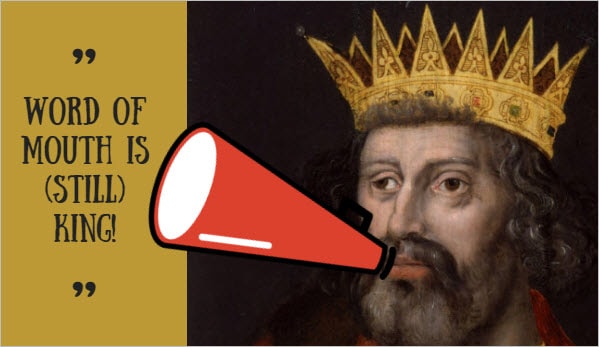 Word of mouth is what keeps your world spinning around (in a good way). The problem, of course, is that it can’t really start happening until you have some experience under your belt.
Word of mouth is what keeps your world spinning around (in a good way). The problem, of course, is that it can’t really start happening until you have some experience under your belt.
Got any friends or relatives who are teachers?
Offer to come in and write a song with their class, and let that be your foundation. Do it again in another classroom, and another school. Rinse and repeat.
You’ll learn a lot, and with any luck you’ll score a nice quote or two from each teacher (especially if you ask them for one) – testimonials are gold for your future marketing.
The more time you can spend working with kids, the better you’ll get at it, and the better you get, the more the word spreads.
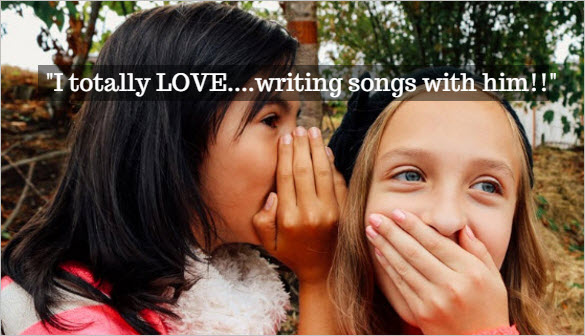 Best Practices for Generating Word of Mouth
Best Practices for Generating Word of Mouth
- Do the work as often as possible
- Pay attention to the needs of the teachers and give them what they want
- Be super accommodating and easy to work with
- Leave the students happy and excited
- Make a positive contribution to the work they’re already doing at the school
Packaging What You Do
If you’ve been reading my blog for any length of time, you’ll know that I put packaging right up there next to talent when it comes to getting the kinds of gigs you can live well on – it is THAT important.
(What? You haven’t been getting each article as it comes out? Just click here and that’s all fixed.)
Three Pillars of Packaging
 In creating and describing your offerings for schools, keep these three things in mind:
In creating and describing your offerings for schools, keep these three things in mind:
1) Make it about them, not you – what do they get out of your visit? Teachers (mostly) don’t care about your musical life outside of schools, so there’s no need to detail music awards you’ve won, CDs you’ve released, etc. Describe the benefit to their life as a teacher.
2) Teachers feel pressed for time, even more than they’re pressed for money. Consider a short and sweet offering for starters, like a single 45-minute workshop for students that involves no “prep time” for the teachers. Make the barrier of entry low, and overdeliver when you get there. That’s where the relationship starts, and huge projects can follow from there.
3) Offer options if you like, but not too many. The greater the need for them to make decisions and figure your project out, the less likely it is that you’ll get booked.
Final Tips From The Pros
To finish up, I asked each musician who contributed to this two-part series for their best tips for beginners.
Here they are, along with several of my own…
“Make it fun! If kids are giving more ideas than you can write down, they are having fun, for sure.” – Marla Lewis
“Never dumb it down. Kids are intuitive, curious and excited to learn by nature. You have to be real. Children can see right through a phony.” – Chip Richter
“Expect depth and quality from the students and they will most often meet that expectation with your guidance.” – Paul Reisler
“Students need to feel ownership of the finished product – it’s really their song, not yours.” – Monty Harper
“Make your visit super easy for the teachers. The last thing they need is more work, and this might be somewhat outside their comfort zone.” – Dave Ruch
“Remember repetition is key and try not to make it too complicated.” – Bill Harley
“Be flexible. There will always be something that doesn’t go as planned. Roll with it.” – Josephine Cameron
“Resist your own (and the teacher’s) temptations to insert a ‘better’ rhyme – the more kid ‘voice’ in the song, the more buy-in.” – Dave Ruch
“I try not to let the process become formulaic, to allow for inspiration as it comes, but it’s also good to have a plan.” – Monty Harper
“With younger kids (elementary) you have to be willing to direct the process, and fill in when something is not working. Inevitably, you get some awkward dumb lines, but that’s okay, too, within reason.” – Bill Harley
“Make it fun and interactive along the way. I end up (encouraging) some singing along, some motions, and some funny lines that’ll always make kids giggle.” – Chip Richter
“Younger kids (K-2nd) are happy to write a song and care less that it makes any sense; 3rd-5th grade students are willing to try anything; older kids are less willing to work on one idea as a group (they want their writing to reflect their own personal viewpoint more closely)” – Monty Harper
“This could be a life changing moment for (the students). Expect that from them and even more importantly, expect it from yourself.” – Paul Reisler
“(If you don’t have much experience), starting with songs everyone knows (e.g. This Little Light of Mine) and writing songs based on those structures is a good intro for you and a class.” – Bill Harley
“Recording the finished product? Have the kids give themselves a massive round of applause at the end of the song (they love that), then have each student walk past the recorder and say their first name into it (they LOVE that).” – Dave Ruch
Many thanks to Bill Harley, Josephine Cameron, Monty Harper, Marla Lewis, Paul Reisler, and Chip Richter for giving so freely of their time and experience for these articles.
Have You Worked In Schools?
Written songs with kids? I’d love to hear about your experiences, and questions are always welcome too.
The Comments section is below.
[optin-monster-shortcode id=”rpx9o8qt3gqfcgsk”]
About The Blog
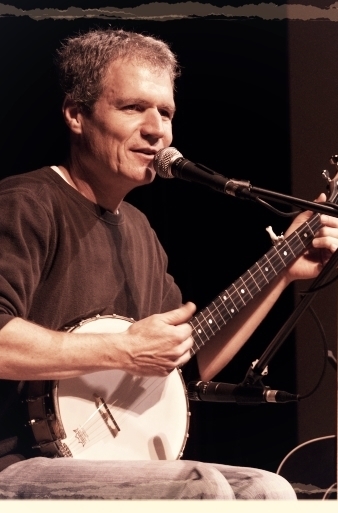 Since leaving a white-collar marketing job in 1992, Dave Ruch has been educating and entertaining full-time in schools, historical societies and museums, folk music and concert venues, libraries, and online via distance learning programs.
Since leaving a white-collar marketing job in 1992, Dave Ruch has been educating and entertaining full-time in schools, historical societies and museums, folk music and concert venues, libraries, and online via distance learning programs.
Along the way, he’s learned a great deal about supporting a family of four as a musician.
The Educate and Entertain blog provides articles, tips, encouragements, and how-to’s for regional performers (in any region) interested in making a great full-time living in the arts.


